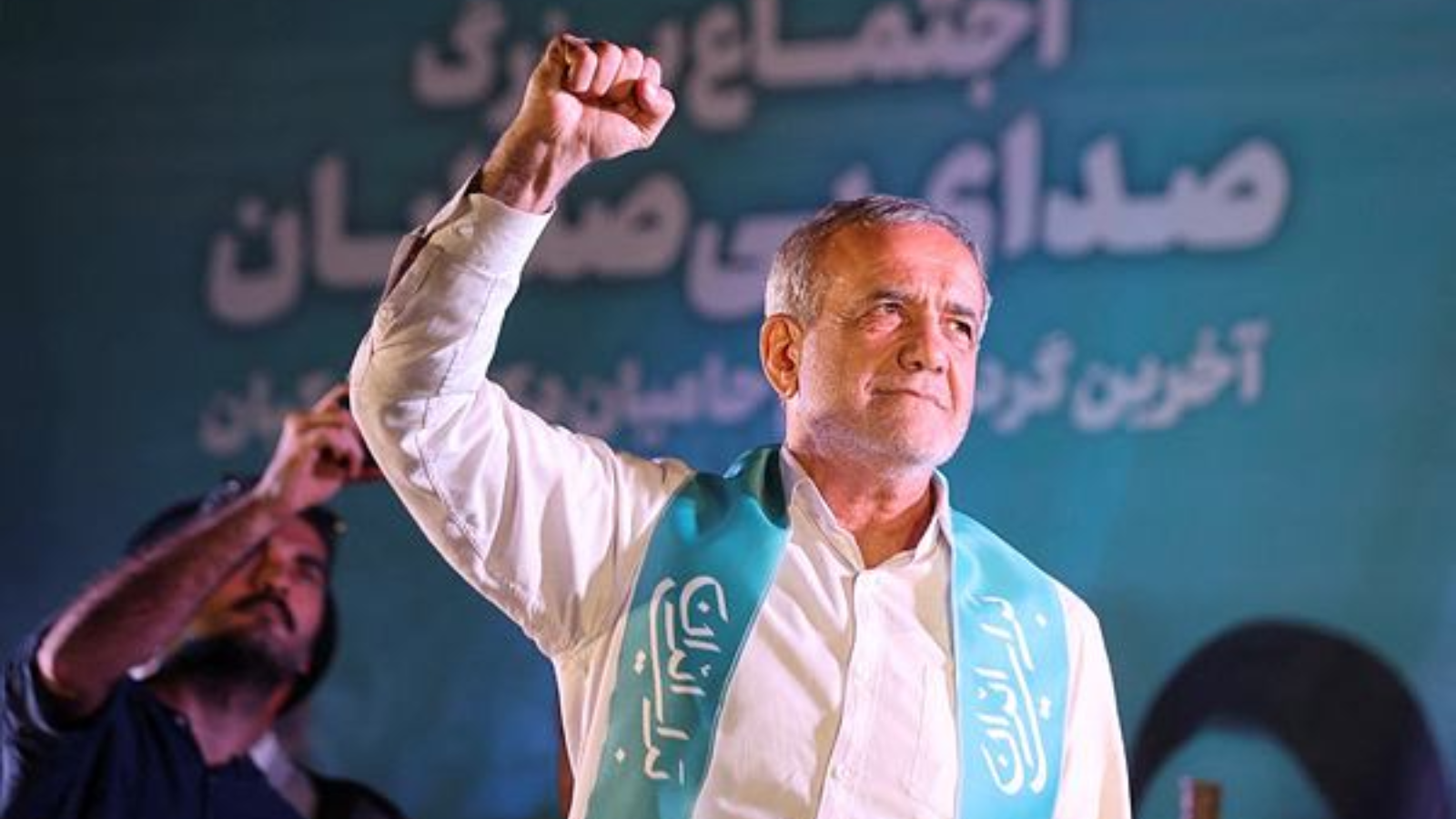



China is closely monitoring Iran's nuclear program under its new president, Masoud Pezeshkian, who has vowed to create balance in relations with all countries [f9d5e1a7]. Pezeshkian emphasizes that Iran will not respond to pressure from the United States and accuses the US of inflicting damage to Iran's economy through sanctions. He also criticizes the US for escalating hostilities by assassinating General Qassem Soleimani [f9d5e1a7].
Pezeshkian's administration prioritizes strengthening relations with neighboring countries and urges Arab countries to push for a lasting cease-fire in the Israel-Hamas war. He expresses willingness to expand cooperation with Russia and China, highlighting Iran's relations with both countries [f9d5e1a7].
Despite the ups and downs in the relationship, Pezeshkian looks forward to engaging in constructive dialogue with European countries. However, he faces challenges in convincing the public of his ability to make promised changes while dealing with an administration largely governed by hard-liners [f9d5e1a7].
China sees potential benefits in Iran's relationship with the West and prefers partnerships with countries that have stable relations. The level of Chinese investment in Iran may increase if relations with the West improve and if the US and Europe take similar steps [70b663ee]. China views Iran as a valuable partner in its broader objective to balance competing Asian power interests while denying Western powers access [70b663ee].
China's diplomatic balancing act and tensions with the US have hindered progress on implementing the comprehensive strategic partnership agreement with Iran. Beijing acknowledges the frustration within Iran regarding the agreement and wants to strengthen ties despite geopolitical complexities [70b663ee].
Iran's newly elected president, Masoud Pezeshkian, vows to create balance in relations with all countries but warns the United States that Iran will not respond to pressure. Pezeshkian penned an open letter titled 'My Message To The New World' in the state-owned Tehran Times, expressing his commitment to the promises made during his campaign [4718ab1f]. He prioritizes strengthening relations with neighboring countries and urges Arab countries to push for a lasting ceasefire in the Israel-Hamas war. Pezeshkian also highlights Iran's relations with Russia and China, expressing willingness to expand cooperation with both countries. He looks forward to engaging in constructive dialogue with European countries despite the ups and downs in the relationship. Pezeshkian accuses European countries of reneging on commitments made after the US withdrawal from the Joint Comprehensive Plan of Action (JCPOA) and criticizes the US for inflicting damage on Iran's economy through sanctions. He emphasizes that Iran's defense doctrine does not include nuclear weapons and accuses the US of escalating hostilities by assassinating General Qassem Soleimani. Pezeshkian faces challenges domestically, including convincing the public of his ability to make promised changes while dealing with an administration largely governed by hard-liners. He has aligned himself with moderate and reformist figures and appointed former Foreign Minister Mohammad Javad Zarif as the head of the Strategic Council for the transition period of the administration [4718ab1f].
Iran's supreme leader Ayatollah Ali Khamenei has officially endorsed Masoud Pezeshkian as the country's president [e3f25006]. Pezeshkian, a relative moderate, won the election by pledging a pragmatic foreign policy and easing repression at home. He will be sworn in on Tuesday. However, it is not expected that Pezeshkian will bring major shifts in Iran's policies as the supreme leader holds the ultimate authority [e3f25006].
Pezeshkian's top economic goal is to break free of US sanctions. He replaces hardline President Ebrahim Raisi, who died in a helicopter crash in May [e3f25006]. Iran has warned Israel against any new adventure in Lebanon after a rocket attack blamed on Hezbollah. Ayatollah Ali Khamenei reiterates Iran's anti-Israel stance and praises Hamas for its resistance against Israel in Gaza [e3f25006].
Iran's Supreme Leader Ayatollah Ali Khamenei received the first dose of the domestically produced COVIran Barekat COVID-19 vaccine on Friday. The vaccine was developed by the Iranian pharmaceutical company Shifa Pharmed. Khamenei's vaccination comes as Iran faces a surge in COVID-19 cases and a slow vaccination rollout. The COVIran Barekat vaccine has not yet completed its phase 3 clinical trials. Khamenei urged Iranians to trust and use domestically produced vaccines [e3d19687].